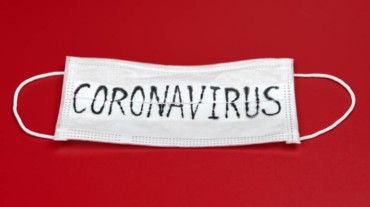
The covid-19 pandemic has the whole world panicked. But it’s not just the repercussions of contracting the SARS-Cov-2 virus that’s keeping people up at night. It’s also that the fact the world doesn’t nearly have enough covid-19 testing kits to diagnose the highly-contagious infection. But even during this dark, dark time there is a ray of hope—and it’s quite adorable to say the least. Because canines are being trained in the UK and US to sniff out covid-19.
Yes, you read that right! Doggos are being trained to be the next diagnostic tool in the battle against covid-19.
According to the Washington Post, researchers at the University of Pennsylvania are training eight Labrador retrievers to ascertain whether or not canines can detect odour associated with coronavirus, thus helping with covid-19 diagnosis.
The United States isn’t alone in this endeavour, as researchers at the London School of Hygiene and Tropical Medicine are simultaneously testing this theory. Previously, the British researchers from the institute had demonstrated that dogs could identify malaria infections in humans.
So how useful can our favourite pets be in our battle against covid-19?
Well, if these furry test subjects can successfully identify “coronavirus odour”, then they might be deployed to screen people at airports, businesses or hospitals—making them a unique type of canine corps.

It won’t be surprising if these pups can pass this test of detecting SARS-CoV-2—because apart from sniffing out drugs, explosives, and contraband food items at airports, dogs can also detect malaria, cancers, and even a bacterium ravaging Florida’s citrus grove. Who would have thought right?
Viruses have specific odours which makes this battle worth fighting
Turns out viruses give out distinct odours, which can help dogs detect them. “We don’t know that this will be the odour of the virus, per se, or the response to the virus, or a combination,” said Cynthia M. Otto, director of the Working Dog Center at Penn’s School of Veterinary Medicine.
“But the dogs don’t care what the odour is. What they learn is that there’s something different about this sample than there is about that sample.” She added.

On the other hand, James Logan, head of London School of Hygiene & Tropical Medicine’s disease control department, had an even more unique insight into this. “Each individual dog can screen up to 250 people per hour,” Logan said. “We are simultaneously working on a model to scale it up so it can be deployed in other countries at ports of entry, including airports.”
Does this mean there’s hope for India which is dealing with a baffling shortage of testing kits?
Not likely! Despite the researchers’ optimistic outlook of using canines as a new-age diagnostic tool, medical authorities are yet to ascertain just where all these pups can be stationed for duty. And this is the US we’re talking about.
Select Topics of your interest and let us customize your feed.
PERSONALISE NOWIn India, where there is an acute shortage of covid-19 testing kits and authorities like ICMR talk about feeling “constrained”, our health bodies are going back to laborious RNA extraction processes in the event of lack of rapid tests for covid-19 diagnosis.
For a practice like this which requires intensive training for both humans and canines to be viable in India is, hence, highly unlikely. But that’s not all! The accuracy rate of canine detection of covid-19 is yet to be ascertained. And in a country like ours where more testing of a very large and densely-located population is desperately required, even a one percent chance of preliminary screening by dogs NOT being fool-proof can have serious consequences.
So while we wish these doggos the best of luck, we’re also hoping that the solution to India’s diagnostic woes for covid-19 can be found soon—even if it’s not as adorable or furry.
(With inputs from ANI)